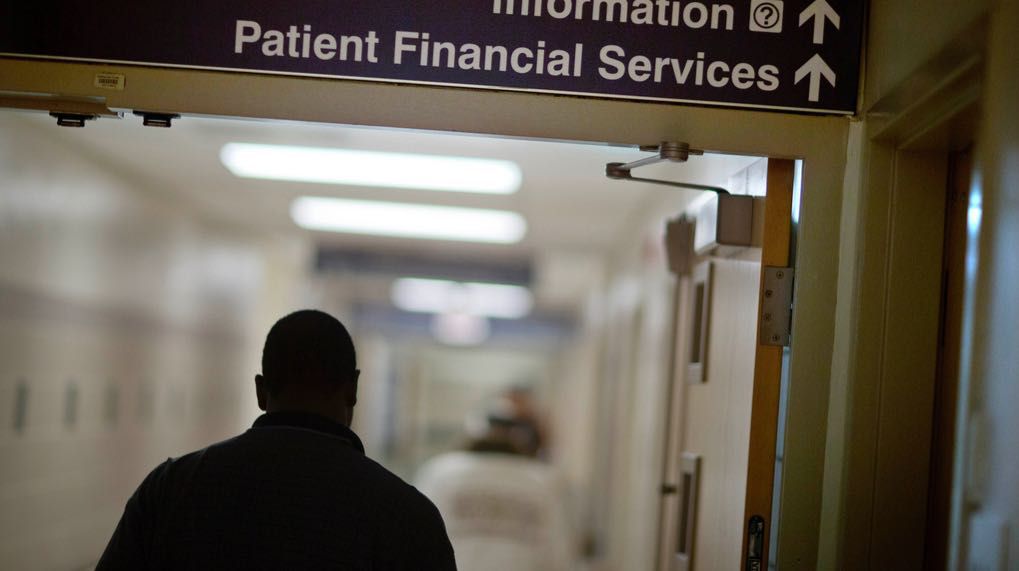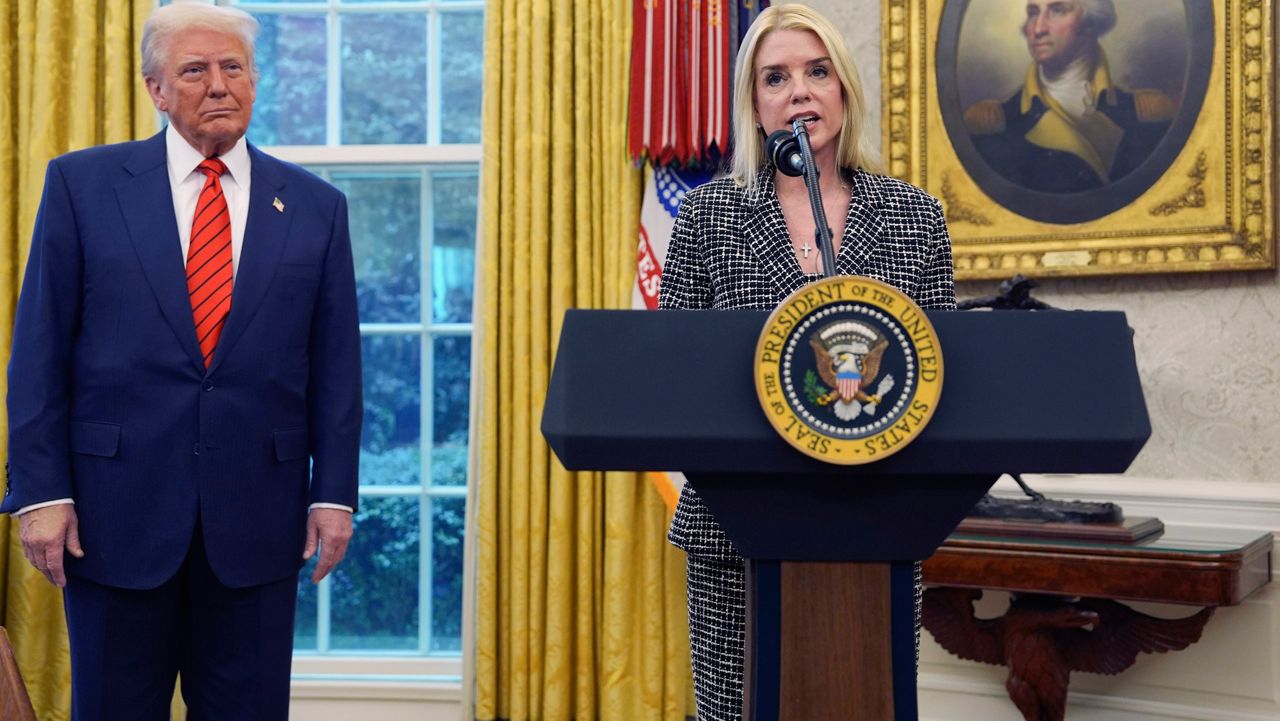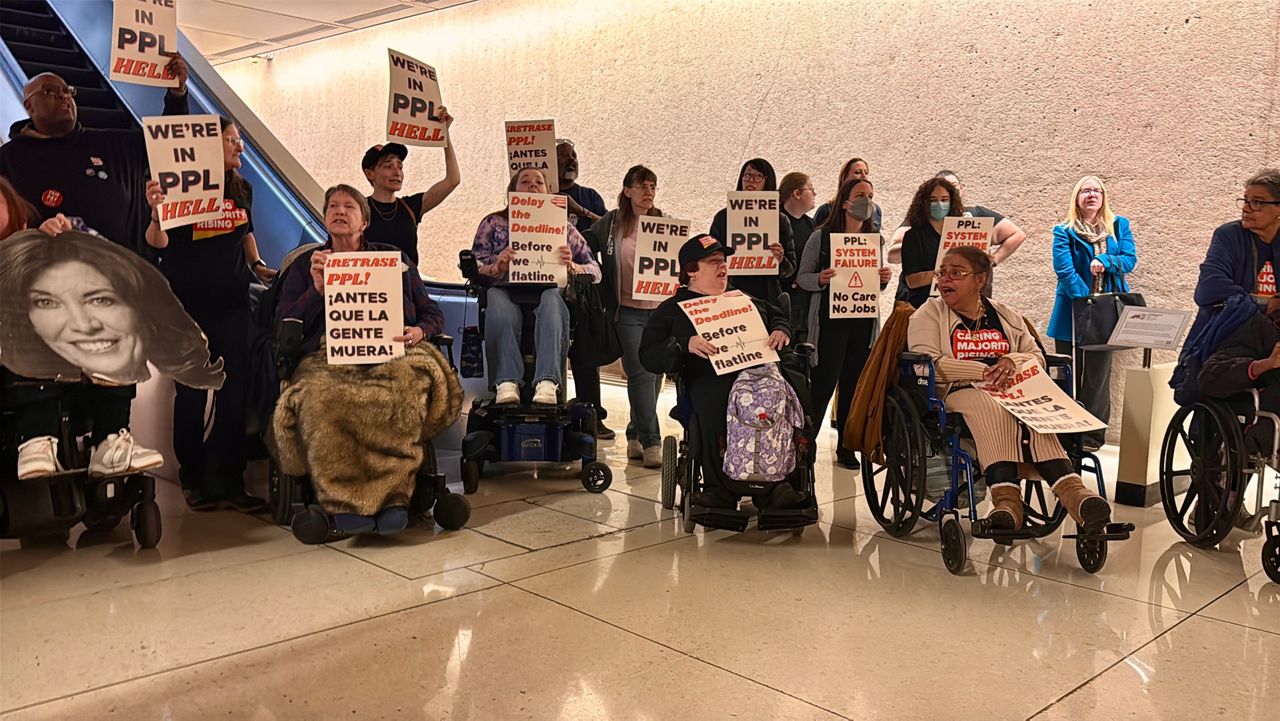New York home care providers are concerned recent changes to a Medicaid program that helps disabled people, and future health care cuts, could place greater burdens on the system amid increased demand.
The state Health Department on Thursday responded to questions about Request for Proposals to choose one company to oversee the state's Consumer Directed Personal Assistance Program after reports of widespread fraud.
The change made in this year's budget is slated to take effect in October, which Gov. Kathy Hochul said will save the state hundreds of millions of dollars per year.
"The governor's own proposal seems very, very far-fetched to execute when there are so many lives that are on this program," said Josh Klein, CEO of Royal Care, the state's largest home care provider.
Providers like Klein are worried those cuts will impact available care, and force elderly and disabled New Yorkers into adult-care facilities. The Alliance to Protect Home Care, a coalition of New Yorkers who rely on home care and their caregivers, launched a six-figure ad buy this week in a last-ditch effort to fight the upcoming change.
"I respect the fact that she wants to see stability and rid the program with the potential fraud and abuse, but drastic changes where it's going to potentially not do well for patients that need the services — it should potentially be done in a more creative way," Klein said.
Klein said the system needs the support of more service providers, not fewer, as the state's Medicaid population grows. Legislative leaders and the state Commission on the Future of Healthcare are working to reduce New York's Medicaid's $100 billion price tag as more people depend on the program, particularly with long-term care costs and funding for hospitals.
One in three New Yorkers rely on the state's Medicaid program — expected to increase as the state population grows older. State Office for the Aging data shows a quarter of New Yorkers will be over the age of 60 by 2030. The state is currently home to more than 4.6 million residents over age 60.
Several home care providers want the state to reconsider its cut to CDPAP, which allows family members to care for disabled New Yorkers at home. Klein argues the changes could be counterproductive and place greater burdens on the system.
"Can one entity handle what [hundreds] of entities have done? It doesn't seem so," he said.
State Senate Aging Committee Chair Cordell Cleare said transitioning from over 600 fiscal intermediaries to a single one will have to create a gap in care.
"If you're trying to create accountability, we have to think of other ways to do that," Cleare told Spectrum News 1. "But just cutting like this, I think is a recipe for disaster."
The state commission studying state health care costs is working to find savings, and reduce a $9.5 billion gap expected by 2026.
Officials with the governor's office said the state's CDPAP spending is unsustainable, and reached over $9 billion last year.
“CDPAP is an important program that empowers New Yorkers to choose their own care at home," a spokesperson with Hochul's office said in a statement. "We’re committed to protecting home care patients, strengthening CDPAP and ensuring the program is sustainable. Our reforms will advance that goal by making sure taxpayer dollars are effectively serving the patients who need them."
The 600-plus fiscal intermediaries under the current program take a significant cut of taxpayer dollars, and are not responsible for scheduling care for patients or supervising caregivers, according to Hochul's office.
"They essentially take money from Medicaid and then process the checks to caregivers, after taking a cut for themselves," according to the governor's office. "We’re reining this in to focus on quality service and increase oversight of the program so that we can make sure taxpayer money goes to pay caregivers instead of being siphoned off by middlemen."
Other health providers said the commission must identify creative funding solutions without impacting care.
Tom Turner, a member of Kinetik Care's Board of Directors, said insurance providers lose millions of dollars annually because of technology issues with the state's non-emergency medical transportation system, causing patients to miss rides.
"It takes the impetus of the states that manage the Medicaid benefit to say, 'This is what we need, this is what we demand,' and to get on with changing the program," he said.
Many Democratic lawmakers were against Hochul's budgeted Medicaid cuts, which made the final spending plan during negotiations.
"Cutting Medicaid puts patients and healthcare workers at risk with one in three New Yorkers depending on the program," Senate Health Committee Chair Gustavo Rivera said in a statement. "Amidst the worst home care shortage in the nation and a silver wave approaching of elderly New Yorkers who will drastically increase the need for long term care services, we should be working on proposals like my Home Care Savings and Reinvestment Act to make our system more efficient."
Rivera sponsors legislation to eliminate Managed Long Term Care plans in the Medicaid program and return to a fee-for-service model, which the state Health Department would manage. It's estimated to save the state $3 billion and reduce the profit of insurance companies.
"I urge the administration and the commission to join me in prioritizing patients and their caregivers by removing profit making from our healthcare delivery system," Rivera said.









